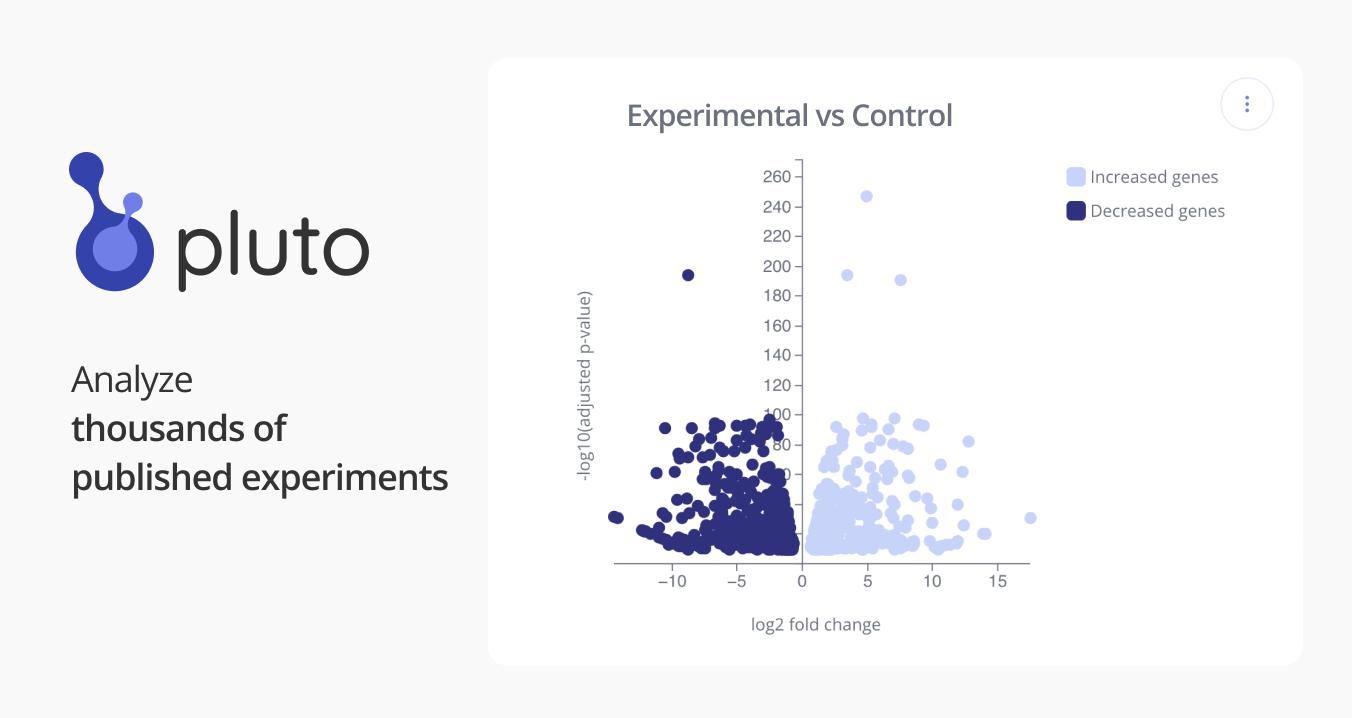Pluto Bioinformatics
GSE66634: Alteration in the transcriptome of the lung during TGF-induced pulmonary fibrosis
Bulk RNA sequencing
Pulmonary fibrosis (PF) is associated with many chronic lung diseases including Systemic sclerosis (SSc), Idiopathic Pulmonary Fibrosis (IPF) and Cystic Fibrosis (CF) which are characterized by the progressive accumulation of stromal cells and formation of scar tissue. Pulmonary fibrosis is a dysregulated response to alveolar injury which causes a progressive decline in lung function and refractory to current pharmacological therapies. Airway and alveolar epithelial cells and stromal cells contribute to pulmonary fibrosis but the cell-specific pathways and gene networks that are responsible for the pathophysiology are unknown. Recent animals models generated in our lab demonstrate clinical phenotypes seen in human fibrotic disease. The mouse model of transforming growth factor- (TGF)-induced fibrosis include conditionally expressing TGF in the lung epithelium under control of the CCSP promoter driving rtTA expression (CCSP/TGF). This allow the TGF is only expressed in airway and alveolar epithelial cells and only when mice fed doxycycline (Dox). Similar to PF in humans, TGF mice on Dox developed a progressive and extensive adventitial, interstitial and pleural fibrosis with a decline in lung mechanics. Thus, the TGF transgenic mouse is a powerful model to determine lung cell-specific molecular signatures involved in pulmonary fibrosis. In this study, we sought to determine changes in the transcriptome during TGF-induced pulmonary fibrosis. Our results showed that several pro-fibrotic genes increased in the lungs of TGF mice. This study demonstrates that WT1 network gene changes associated with fibrosis and myfibroblast accumulation and thus may serve as a critical regulator fibrotic lung disease. SOURCE: Mario MedvedovicLaboratory for Statistical Genomics and Systems Biology University of Cincinnati
